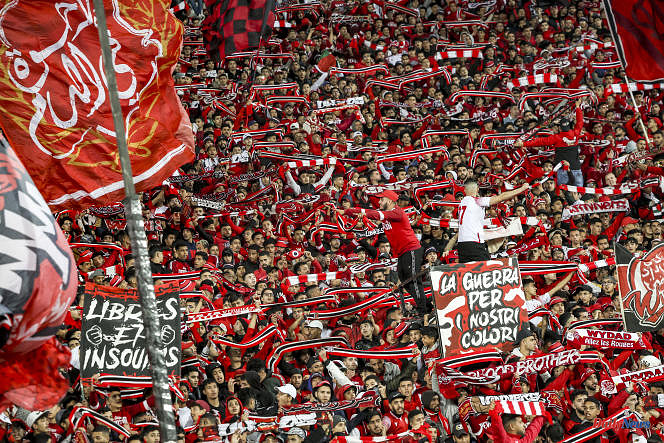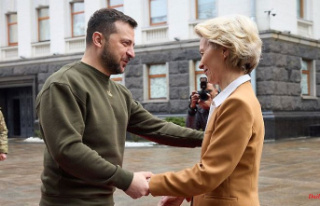In Casablanca, the old Mohammed-V stadium trembles under the songs of Wydad (WAC) supporters, at the very moment when a gigantic tifo is brandished, at the kick-off of a match of Botola (the Moroccan first division) disputed by the national and African champion.
That evening, the 10,000 Winners – the ultras of the WAC – of the north curva (bend) put on a flamboyant show, worthy of the reputation of Moroccan fans, who frequently steal the show from the players. "Free souls", their motto, is inscribed on the tifo, a visual animation requiring careful coordination.
Winner of the last African Champions League, the WAC is playing the Club World Cup from Saturday and hopes to do as well as its rival Raja Casablanca, who played in the final against Bayern Munich, lost 2-0, in of the first edition organized in Morocco, at the end of 2013.
"I cannot describe my love for the public of Wydad", confides to AFP Houssam Aït Wahman, before the championship match played at the end of January against MAS Fès. "Fans from all over the world can't compete with us," enthused the 18-year-old fan, who came with his mother and sisters to fill the bays of a 45,000-seat enclosure.
" To highlight "
Like a conductor, the Winners, named the best supporters in the world in 2022 by Ultras World, a reference on the networks, set the tempo. They sing, crackle smoke bombs, make their cellphone lights dance like fireflies...
“Supporting Wydad is a passion, a commitment that goes beyond football. We show the best of ourselves by defending values such as respect for the family and solidarity, ”says Mohamed, in his thirties, an ex-Winner who prefers to keep his name quiet.
The illustrious Raja's ultras - the Green Boys and Ultras Eagles - are also known for their spectacular set design.
“Creating spectacle is the hallmark of ultras. It's a way for them to express themselves, to showcase themselves, ”analyzes Moroccan sociologist Abderrahim Bourkia, author of an essay on the phenomenon, for AFP.
The black beasts rajaouies highlight committed references, viral on the networks. Like "F bladi delmouni" ("oppressed in my country"), a song denouncing the injustices that have crossed the borders of the kingdom.
In Algeria, protesters from the Hirak popular protest movement sang it in 2019-2020. The anthem has also been taken up by the Palestinians. "The Raja model tends towards a militant culture carrying the voice of the voiceless, which stands up against oppression and denounces corruption", details a former ultra of the Green Boys.
But supporters of Wydad or Ittihad Tangier also use committed slogans and, according to Mr. Bourkia, the stadiums are "spaces of expression".
Unique experience
In Morocco, a country still crowned with the historic journey of its national team, semi-finalist of the 2022 World Cup in Qatar, the creativity of the supporters seems limitless.
If the Winners prefer to play the card of aesthetic visuals with references to pop culture – Game of Thrones or the manga Death Note –, the Green Boys and the Ultras Eagles claim sometimes unexpected references. Thus, during derbies against the WAC, their tifos were inspired by the master of the theater of the absurd Eugène Ionesco or 1984, the mythical anti-totalitarian dystopia of George Orwell.
At the risk of attracting criticism from conservative media and being banned from tifo. One of them unleashed passions: a 3D image of Alex, the ultra-violent hero of A Clockwork Orange dressed as a supporter of Raja. For this former ultra Rajaoui, being part of the community is "a unique experience", it is "being in a place of exchange, feeling listened to".
The reputation of the "kings of the stands", however, was tarnished by acts of hooliganism and brawls, inside and outside the stadiums. After the deaths of two supporters in early 2016, authorities banned ultras from the stands for two years. “There is the crowd effect, it only takes one person to do something stupid and it goes wrong,” said Mohammed, a former Winners. "Some release their frustrations through songs, others through violence," explains the sociologist, for whom the solution is "to invest in the education of young people."












